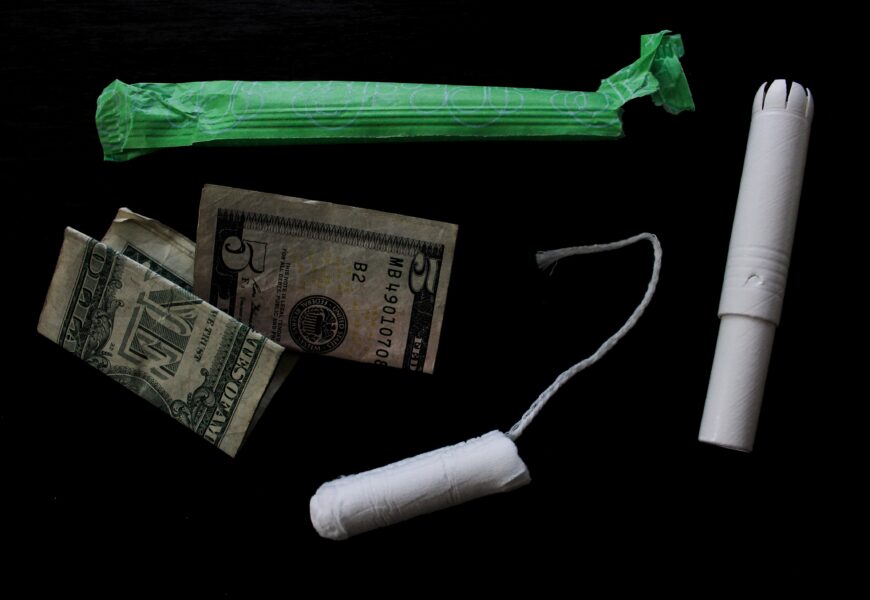Photo courtesy of Unsplash.
Many Americans—mostly women— are aware of what is known as the “Pink Tax.” The pink tax is a system that has industries pricing products for women higher than products for men, even when the products are the same. For example, “a five-pack of Schick Hydro cartridges in purple packaging cost $18.49, while the same count of Schick Hydro refills in blue packaging cost $14.99.” This system is apparent in so many of the goods that we buy, most notably tampons.
In the United States, people are exempt from paying taxes on items that are deemed essential or “non-luxury items.” So when most women go to the store and are taxed for menstrual products, they wonder: why are tampons non-essential? Luxury taxes are placed on items that are only considered available for the wealthiest individuals because they can afford the higher prices. This tax is imposed with the intention of targeting wealthy consumers, so why is it that poor and working class people are suffering? Currently in America, 31 states have deemed tampons and pads luxury items.
When the absence of an item causes 1 in 4 teenagers to miss class, can we truly call it non-essential?
Compared to other “non-luxury items,” tampons quickly lose their “luxury” value. The main comparison to tampons is Viagra. With the exception of Illinois, all U.S. States don’t tax Viagra as it is a prescription drug and therefore is exempt from taxation. Some argue that the law cannot discriminate based on gender because other female-specific products—birth control for example—are not taxed.Though the act to repeal the tampon tax has had great support, there has been some opposition. Most people and government officials that are hesitant to repeal the tampon tax aren’t wary about the necessity of tampons, but the revenue that it brings in. “‘I never heard anybody say it was a bad idea to get rid of the tax,’ Ms. Ajello said. ‘I just heard some people wonder whether we could afford it.’” Many states boast their effort to repeal the tampon tax, but haven’t made it official. States such as California have made “‘tax breaks’” that remove taxes on menstrual products and diapers for the next two years. “‘We hope to extend it, but we hope to be in a fiscal position to do so and we want to maintain our prudence’” California was reported to have to spent $76 million a year for removing the tax on menstrual products and diapers. Most Americans believe that the government should be leading and protecting them. If the government doesn’t think it can afford to spend money on menstrual products, how can it expect its citizens to?
Another opposition is how this “exemption” of a particular product is going to affect others. If tampons are absolved from a tax, what other items might people try to push through too? There has always been a rightful worry about precedent when dealing with laws in this country. Nevertheless, a tax incorrectly marking necessary items as “luxury” is unfair to those who need it and gives society an incorrect notion of equality in the country.










